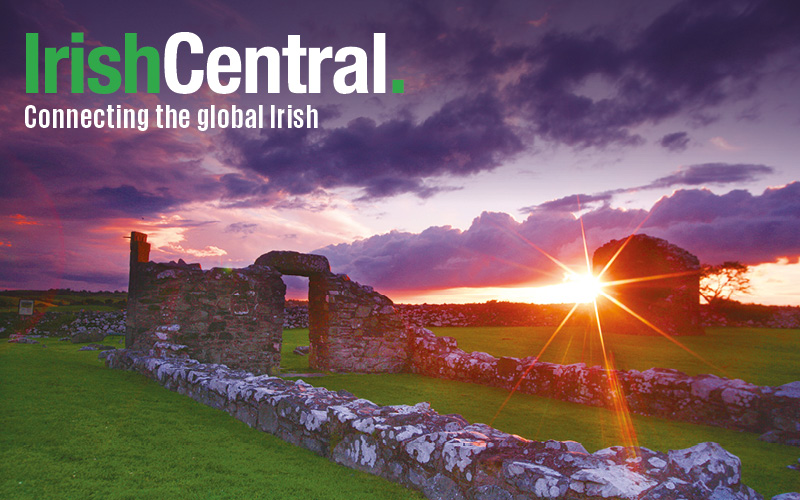As the editor of Irish America magazine, it was an interesting experience, to say the least, following up our issue commemorating the Great Hunger with one in which we profile Irish-American titans of Wall Street.
In a way, those two words “Famine” & “Finance” could be seen as the bookends of the story of the Irish in America.
Not that we claim that success in the financial world is the only indicator of Irish power, but “let’s not be naive,” as Bob McCann CEO of UBS Wealth Management puts it. http://www.irishcentral.com/IrishAmerica/The-Vision-of-Bob-McCann.html
When you contrast the billions of dollars that the Irish on Wall Street are responsible for, to the lack of material wealth that the early Irish settlers arrived in America with, it certainly is an achievement.
Really, when you look at Irish history, it’s amazing that we survived at all, let alone prospered.
Like the Native Americans we were rounded up and marched across our own country to “reservations” (the barren land of the western seaboard) under Cromwell’s “to hell or Connaught” campaign. Like the African Americans we were sent as slaves to Barbados.
We shared passage on slave ships, arriving in the New World as indentured servants, and headed south to work on plantations with slaves purchased at auction on the wharfs in New York.
And all of that happened before the cataclysmic Famine of the 1840s, which as Irish America's readers point out, would more aptly be labeled genocide, when one in eight of our population died.
Of course, the Irish were coming to America in pre-Famine times too; one-third of George Washington’s army were Irish. And on this past Independence Day, I happened to speak to Charles Carroll, a direct descendant of Charles Carroll, the only Catholic to sign the Declaration of Independence.
(Charles the signer’s grandfather had been dispossessed of his lands in Tipperary during Cromwellian times.) But it was the Famine immigrants, so many in such a short time, who became the cement on which the legacy of Irish America is built. And they got off to a rough start.
Their first home in America was often a slum dwelling. “In the predominantly Irish Fifth Ward of Providence, Rhode Island, in 1850 an average of nearly nine persons, 1.82
families were packed into one or two-room dwellings.
"In New York City almost 30,000 people, primarily Irish, lived below ground level in cellars often flooded with rainwater and raw sewage,” William Shannon wrote in The American Irish.
Yet, as Orestes Brownson predicted in his Quarterly Review (c.1840s), “Out of those narrow lanes, blind courts, dirty streets, damp cellars, and suffocating garrets will come forth some of the noblest sons of our country, whom she will delight to own and honor.”
For those who headed out of the cities in search of opportunity, it was a hard slog working on the railroads, working in the mines, building the canals. In New Orleans slaves were deemed more valuable than the expendable Irish laborers who died in their thousands of swamp fever building the canals.
How is it then, after such brutal colonization and starvation, and a poor start in America, we emerged a people with a distinct culture intact, and, if this issue is any indication, an impressive number of high achievers in our midst?
If it doesn’t kill you, it will make you stronger, my mother was fond of saying, and what the Irish endured made them feisty, determined and proud. It was that fury that fueled their survival and propelled them forward, or so I believe.
Generations of resistance made for great fighters, whether it was agitating for better wages and conditions in the mining and railroad camps, or fighting in America’s wars.
Irish fighting men have been awarded more Medals of Honor than any other ethnic group in U.S. military history. And let’s not forget the women. Of 600 nuns serving as nurses during the Civil War, 53 percent were Irish-born.
Today, the Irish hold many of the top jobs on Wall Street. They and others in the financial industry have one hell of a fight to take on. The nation’s economy rests in their hands. If, as history shows, great leadership is born out of human experience, we have nothing to worry about.
Brian Moynihan, CEO Bank of America, whose ancestors left Ireland during the Great Starvation said:
“It is going to be hard work and it’s going to be challenging. But when we look to the task ahead, we can take solace, it is clearly not as hard as our ancestors’ task was to leave Ireland and establish a new life. In addition, we have another benefit to help our efforts – their determination is in our blood.”




Comments